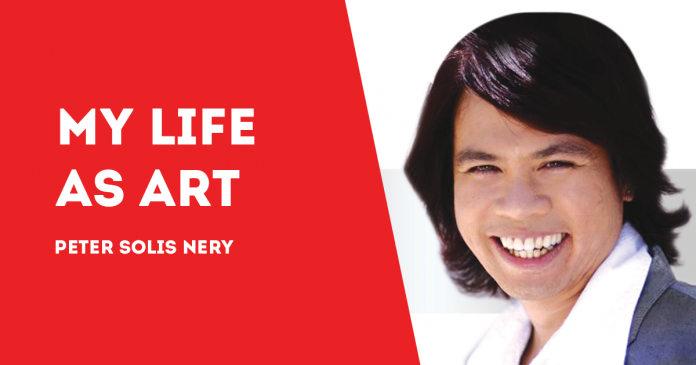
The Proper Subject and Themes of Poetry.
Or, Why You Should Write with a Condom.
*
I have no intention of prescribing or pontificating certain subjects and themes for poetry.
I am not in a position to do so.
And my personal position on the matter is this: Nobody is in the position to do so!
But I feel that at this stage in my literary career, I can make very good suggestions.
And I can rationalize those suggestions in a manner that is rather entertaining.
*
In many of my workshops, I am often asked what are the good themes or topics to write about in poetry.
I think the question stems from wanting to win poetry competitions.
And the question comes mostly from newbie writers.
My answer is almost always the same: there are no preferred topics or subjects to good poetry or good writing.
There are only well written literature, and literature that are badly written.
*
As for literary contests, you can try to please the judges, or you can just write to please yourself with what you think is the best form for your poem or story.
If you are intent on winning a competition, study the competition.
Who are the judges?
Who are the past winners?
Review the past winners.
What kinds of works have won in the last three or five years?
What are their subjects and themes?
Maybe there’s a trend.
Maybe there’s not.
Maybe it’s your turn to eschew, or upend, the trend.
*
Write with a condom.
What was I thinking when I wrote those words?
I guess I was just thinking of aggiornamento—that is, bringing poetry up to date.
I wanted to say people can stop writing like Shakespeare.
Or stop copying the language of Shakespeare.
That they can speak and sing the language of our generation.
That they can write poems with words like ‘condoms’ and ‘emojis.’
*
I like poetry that I can relate to.
Poetry that makes me feel young, present in the world, updated with the times.
Sure, old ideas, familiar feelings—love, death, and despair anytime, every time.
But new language, new images, new metaphors, please.
I like poems with Facebook, coronavirus, facetime, sex scandals, viral videos.
Because these are the realities of our time.
Shakespeare has already covered all the thees, thous, and fuckeths, so why the eff are you stuck with those?
*
We write because we want to be read.
But there are readers no more.
We are all just writers!
I don’t believe in poets who don’t read.
*
I’m talking to, and about, wannabe writers, of course.
Newbies who are so eager to be published, and read.
Young writers who think they have invented love, passion, and desire.
Wannabe poets who don’t realize that what they’re saying has already been said a thousand times before.
There’s no use teaching them about clichés.
Clichés are only clichés if you have read or heard them before.
If you don’t read, how can you say that what you are writing is cliché?
But is ignorance of the law an excuse?
Ah, that word: Ignorance.
Why would I read something that is written by someone ignorant?
*
So, no, I don’t read new writers who haven’t read Peter Solis Nery and Shakespeare.
Let me clarify: I read a lot of new writers.
I read wannabe writers; at least, up to their first sentence.
If I like the first sentence, I’ll continue to read, and maybe even buy their books.
But if I don’t enjoy the first sentence, I take note of their name, and swear never again to read anything they’ve written.
*
People often ask me to read, and comment on their “literary” works.
If they don’t know any of my works, I immediately turn them down.
The gall to ask me!
If you want me to critique your work, first, you must get an idea of my own poetics, my leanings and “favorites,” biases and preferences.
My comments can only mean something if you believe in the things I believe in.
I don’t like to argue with a newbie.
For an ignorant writer, no explanation will suffice.
For a PSN non-believer, no explanation is necessary./PN



![FLOOD CONTROL SCANDAL: Ombudsman cases filed vs DPWH staff, contractors “This [flood control scheme] is a corruption on a scale that we have not seen in the past,” says Public Works Secretary Vince Dizon. “The Napoles scandal is like petty change compared to this.”](https://www.panaynews.net/wp-content/uploads/2025/09/Ombudsman_copy_resized-218x150.jpg)

